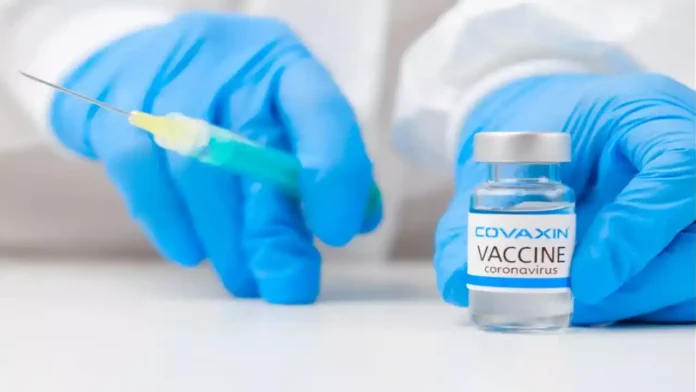The Indian Council of Medical Research (ICMR) has issued a scathing rebuke against a study conducted by Banaras Hindu University (BHU) professors, which purportedly highlighted “serious” side-effects of Covaxin, India’s indigenous COVID-19 vaccine. In a strongly worded statement, the ICMR has demanded an apology from the professors involved in the study, raising questions about the methodology and credibility of their findings.
The controversy stems from a research paper authored by a group of BHU professors and published in a peer-reviewed medical journal. The study claimed to have identified adverse reactions in individuals who received Covaxin, including neurological complications, loss of consciousness, and seizures. These findings sparked widespread concern and triggered calls for further investigation into the safety of the vaccine.
However, the ICMR has vehemently contested the validity of the study, questioning its methodology and alleging serious discrepancies in the data presented. In a press release, the ICMR described the study as “flawed” and “misleading,” accusing the authors of spreading misinformation and causing unwarranted panic among the public.
Dr. Balram Bhargava, Director General of the ICMR, expressed his disappointment with the BHU professors’ conduct, stating, “It is deeply regrettable that esteemed academics would resort to such unscrupulous tactics to undermine the credibility of Covaxin, which has undergone rigorous testing and has been granted emergency use authorization based on robust clinical data.”
The ICMR’s response underscores the gravity of the situation and the potential consequences of spreading unfounded allegations about COVID-19 vaccines. Covaxin, developed by Bharat Biotech in collaboration with the ICMR, has played a crucial role in India’s vaccination drive, contributing to efforts to curb the spread of the virus and protect public health.
The controversy has reignited debates about vaccine safety and the role of scientific research in informing public health policy. While scrutiny and critical analysis of vaccine data are essential for ensuring transparency and accountability, it is imperative that such assessments be conducted with the utmost diligence and adherence to scientific principles.
Critics argue that the BHU study may have inadvertently undermined public confidence in Covaxin, potentially discouraging individuals from getting vaccinated and hindering efforts to achieve herd immunity. Vaccine hesitancy, fueled by misinformation and skepticism, poses a significant challenge to global vaccination efforts and jeopardizes the prospects of ending the COVID-19 pandemic.
In light of the ICMR’s condemnation, the BHU professors have come under scrutiny, with calls for them to retract their study and issue a public apology. Some have questioned the motivations behind the study and raised concerns about the potential impact of its findings on public health discourse.
Dr. G.C. Khilnani, one of the authors of the BHU study, has defended the research, asserting that it was conducted with the utmost integrity and adherence to scientific standards. He emphasized the importance of transparency in vaccine safety monitoring and called for a thorough investigation into the adverse events reported by Covaxin recipients.
The controversy surrounding the BHU study underscores the complexities of vaccine research and the challenges inherent in assessing vaccine safety in real-world settings. While adverse events following vaccination must be investigated and addressed, it is essential to differentiate between genuine concerns and baseless claims that may undermine public confidence in vaccines.
Moving forward, there is a need for greater collaboration between researchers, public health authorities, and vaccine manufacturers to ensure the transparent and rigorous evaluation of COVID-19 vaccines. Trust and confidence in vaccination programs are essential for achieving widespread immunization and overcoming the COVID-19 pandemic.
In addition, the ICMR’s condemnation of the BHU study highlights the importance of scientific integrity and responsible research conduct in the field of vaccine safety. While questions about Covaxin’s safety are legitimate and merit investigation, unsubstantiated claims can have far-reaching consequences for public health. As the global community continues its battle against COVID-19, it is imperative that all stakeholders prioritize evidence-based decision-making and work together to promote vaccine acceptance and uptake.

